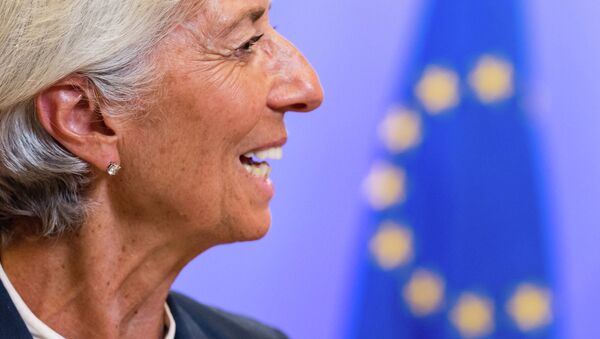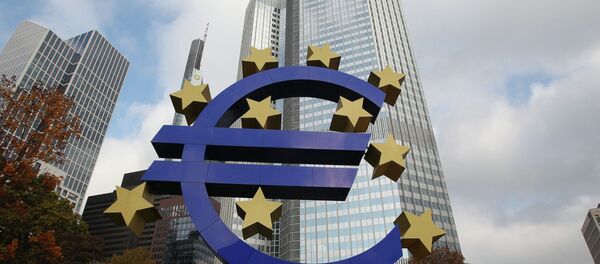The updated debt sustainability study, seen by Reuters, was sent to Eurozone officials on Monday, just hours after Greece and the rest of the currency union finally agreed upon a series of tough debt-for-reforms measures, which they hope will unlock $95 billion (€86 billion) in financial aid for the country, in return for the implementation of further austerity measures.
However, the IMF analysis seemingly contradicts the terms of the deal, arguing that more concessions would need to be made to Greece — given the devastating effects the last two weeks have had on its economy and banking sector, with capital controls imposed on institutions amid a fear the country would run out of money.
Statement by the IMF on #Greece financial obligations due today http://t.co/jPOJNIzr9A
— IMF (@IMFNews) July 13, 2015
"The dramatic deterioration in debt sustainability points to the need for debt relief on a scale that would need to go well beyond what has been under consideration to date — and what has been proposed by the ESM [European Stability Mechanism bailout fund]," the IMF said.
Blanchard: Greece a reminder of the dangers of high debt. http://t.co/ORzIA4vT5O #WEO pic.twitter.com/kfifAzIHjf
— IMF (@IMFNews) July 9, 2015
The Washington-based fund’s report argues that European countries would need to give Greece a 30-year grace period on its European debt, make annual fiscal transfers to the Greek budget or accept "deep upfront haircuts" on their loans.
Report Throws Deal Into Question
While many economic analysts have been highly critical of the deal put forward to Greek Prime Minister Alexis Tsipras, this admission by the IMF – one of the creditors involved in the bailout – pours fresh scrutiny over the economic sustainability of the proposals and questions the credibility of Eurozone partners, who have been accused of driving too hard a bargain with Greece.
Countries in arrears to the IMF Greece Somalia Sudan Zimbabwe pic.twitter.com/g8gU7PXqgG
— ian bremmer (@ianbremmer) July 8, 2015
The harsh effects of austerity have already had a detrimental impact to Greece’s economy and society over the past five years, with the IMF’s assessment that large-scale debt relief is needed sure to add to the criticism.
However, this isn’t the first time cracks have emerged between Athens’ creditors, with Greek officials previously arguing that the conflicting agendas and demands of the Eurozone and the IMF made it nearly impossible to secure a workable deal.
The fact that the economic sustainability of such deals has been questioned also raises concerns over the political agendas of many Eurozone countries that made finding a deal with Greece nearly impossible.
Germany has been highlighted by many as being one of the toughest negotiators throughout the debt crisis, with some commentators arguing that Berlin was trying to make a political statement by forcing Greece to accept harsh terms, in order to avoid further anti-austerity rebellion from other countries in the bloc.
As a result, there has been a backlash against German Chancellor Angela Merkel and Finance Minister Wolfgang Schäuble in parts of the media and general public, with concerns the bruising nature of the debt negotiations would open more cracks within the EU.



